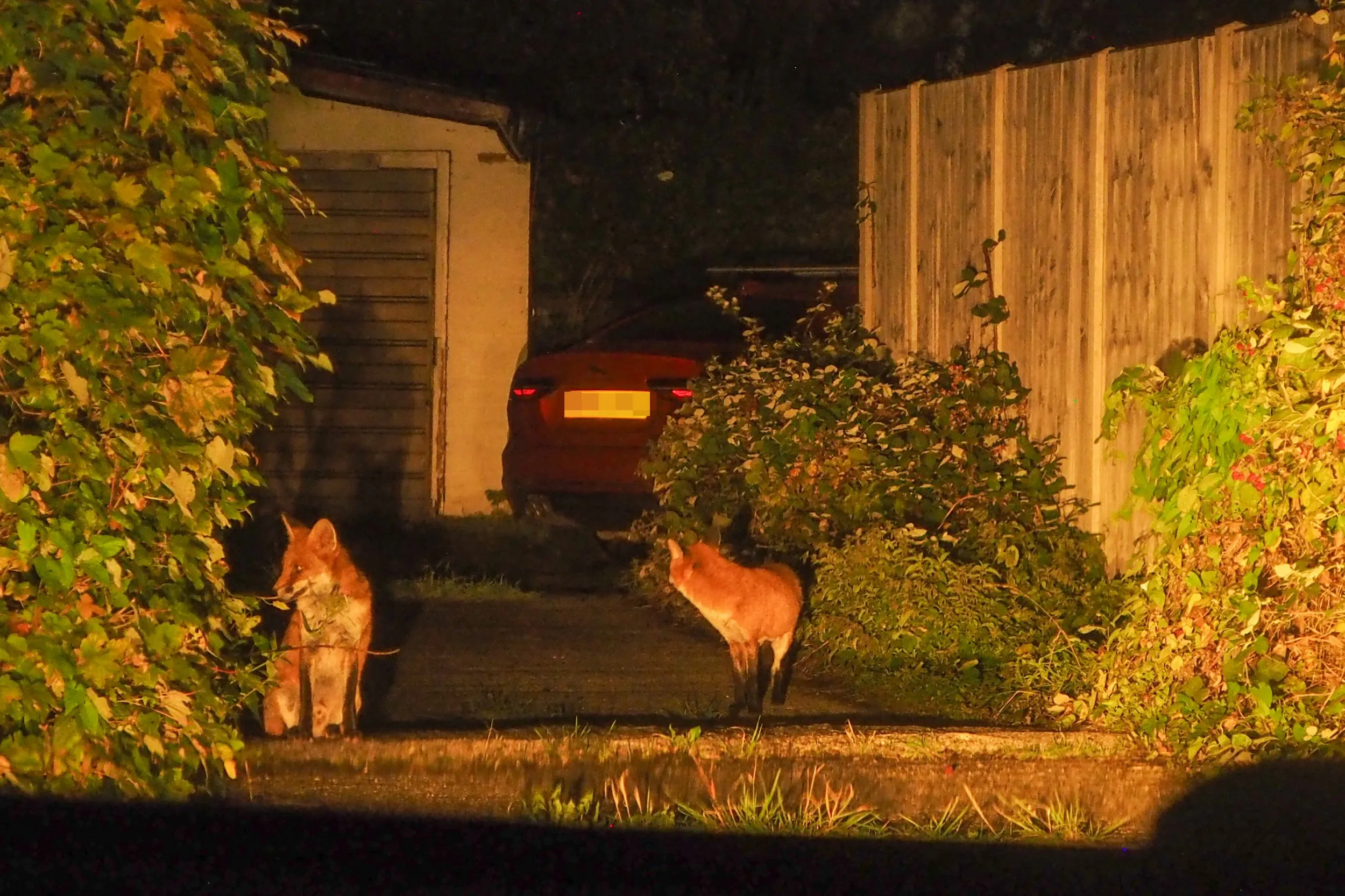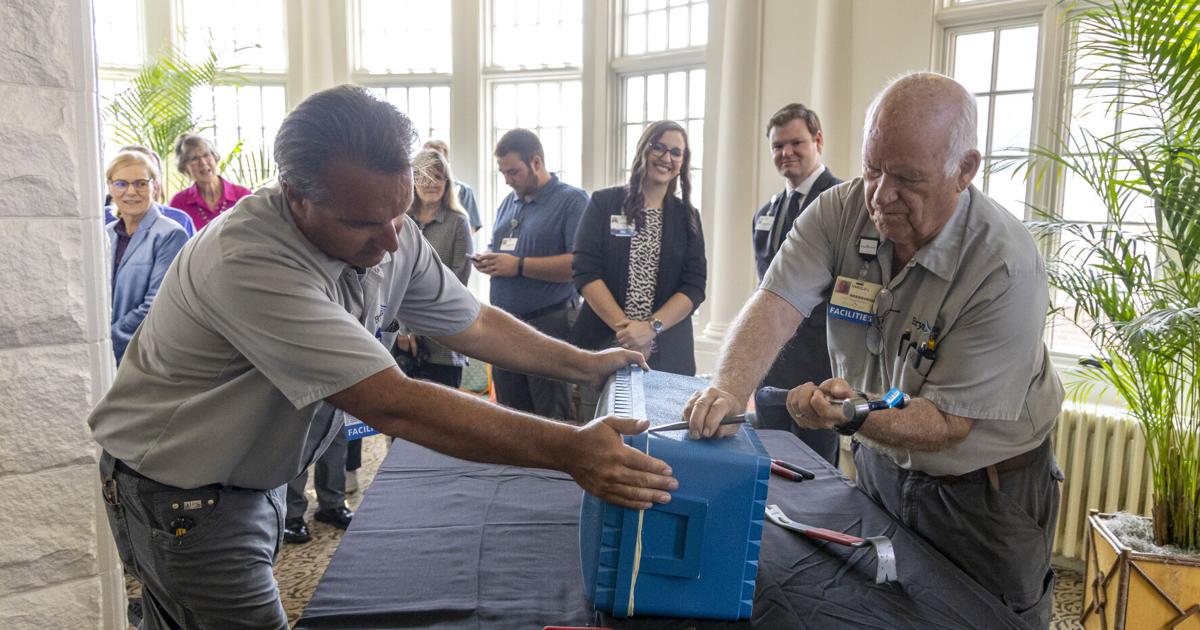By Luke Alsford
Copyright metro

Foxes are ripping cars to shreds in Porchester (Picture: Solent News)
A seaside village has declared war on bandit foxes after the animals caused thousands of pounds worth of damage to their vehicles.
‘Gangs’ of foxes have become ‘obsessed’ with chowing into cars in Porchester, Hampshire.
Residents have been forced to set traps to stop the animals from chewing their brake wires and scratching their vehicles.
One nearby garage says the problem has become so bad that they’ve recently served 10 customers who’ve come in cars damaged by foxes.
But locals are fighting back.
A chewed-through brake wire (Picture: Solent News)
They have resorted to smothering their brake wires in chilli powder and Vicks VapoRub, an ointment for colds, to put off the aggressive foxes.
Others have turned to garlic spray, with the vixens turning their noses at the chemical compound inside of it, called alliinase.
For window cleaner Terry Stroud, 48, the fox terror almost cost him his life.
He was driving to work in his van one morning when he realised he ‘couldn’t brake at all’.
The repair job cost £350 and he lost out on a day’s work.
He said: ‘I was so lucky I could stop using the handbrake, especially at that time of the day
‘It’s frightening when you can see that I could’ve run down a bunch of schoolchildren.
Terry Stroud said his brakes did not work one day due to the foxes (Picture: Solent News)
‘The sheer number of foxes on our street is ridiculous. You can look out of your bedroom window at five or six in the evening and all you can see in the gardens are foxes.’
A mechanic at the garage, Jack Burton, said they had seen ‘eight or nine’ similar cases in recent weeks in the historic medieval village.
For another resident, Annmarie Stallard, 33, her car was left undrivable twice in a single month.
She said the foxes had been targeting her anti-lock braking system (ABS), which is a key safety feature that prevents skidding during stops.
She witnessed a group of foxes attack the safety mechanism, leading her to replace it twice in September last year, costing hundreds of pounds.
Annmarie is making sure she won’t be going through that again by using spiked mats to deter the animals from approaching her Hyundai IX35 car.
She said: ‘I rely on [my car] for commuting to my shop 20 miles away as well as collecting business goods.
The bandits are climbing on top of vehicles and leaving heavy scratches (Picture: Solent News)
‘I have to put the “fox traps” under every night. They are just prickle mats on a frame that push under my car tyres every night, so that it’s uncomfortable for them to sit on.
‘I have also put my sensors in armoured trunking and attached it to the underside of my vehicle, although one side had to be removed due to a faulty sensor, so back to square one again.’
She continued: ‘Nothing can be done but car manufacturers use animal fats in the cable that [foxes] love the taste of.’
Another issue faced by Porchester drivers is scratching on their vehicles when the culprits clamber on top of their bonnets.
Resident Yvona Hamarová’s car suffered that fate, despite the fact that she goes out to chase the animals away whenever she sees them.
She said: ‘They are so used to people, they will just stare at you and you can get pretty close to them.’
Foxes are roaming the streets undeterred by efforts to repel them (Picture: Solent News)
To her horror, the foxes have also left ‘diarrhoea piles right outside our front door, all over the drive, garden and my outdoor furniture’.
Cars are not the only victims of the fox bandits.
Yvona’s family has also seen plant pots broken, their hot tub ‘chewed’ and several of their dog’s toys disappear.
She said: ‘I have had to re-do my whole fence and my next door neighbour doesn’t use part of his garden, so it’s all overgrown.
‘I believe [the foxes] live there, as most of the dog toys were in and under the bushes.
‘I don’t really mind now the weather is not great because my dog uses the garden for the toilet and the kids don’t go out.
‘But in the summer I have had to mix bleach with water and dish soap and pressure wash the diarrhoea before I let either the kids or the dog outside in my own garden.’
The AA motoring organisation has previously speculated that foxes may be attracted to brake wires because of the taste or texture of materials used for the wire casings.
Foxagon, a fox deterrence company, has said many car producers now use animal fats to coat cables, which invites foxes to see them as a snack.
Others have speculated it is the soy-based insulators that encase the cables which are attracting the hungry foxes.
Get in touch with our news team by emailing us at webnews@metro.co.uk.
For more stories like this, check our news page.



